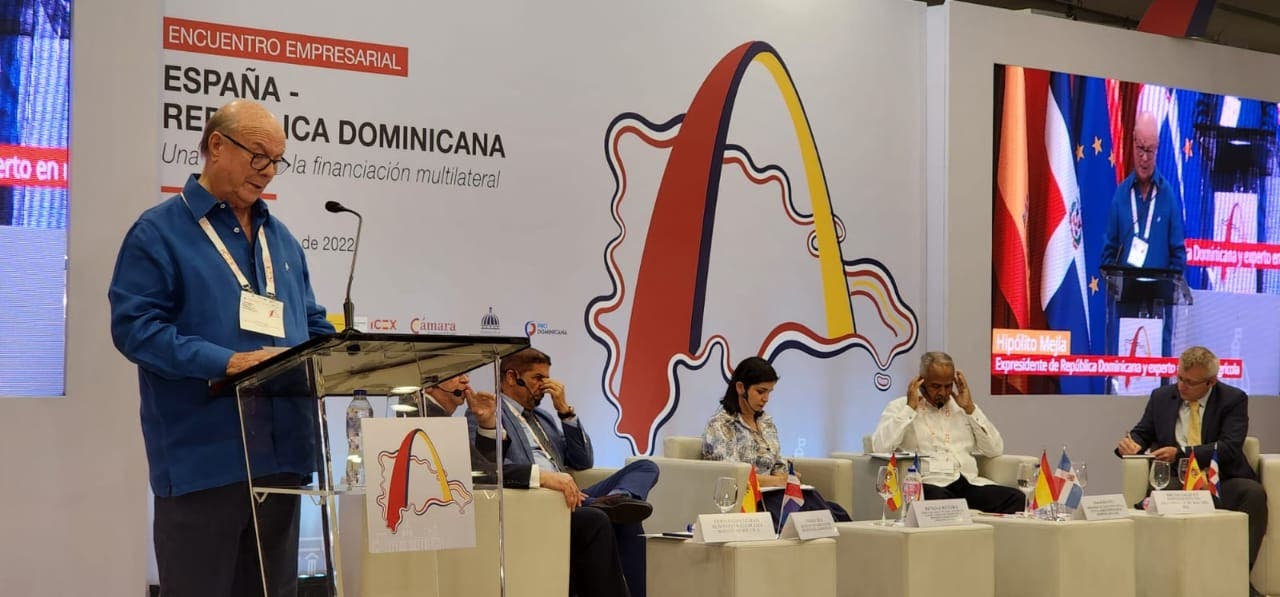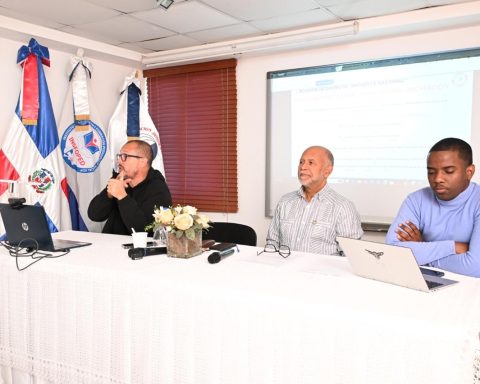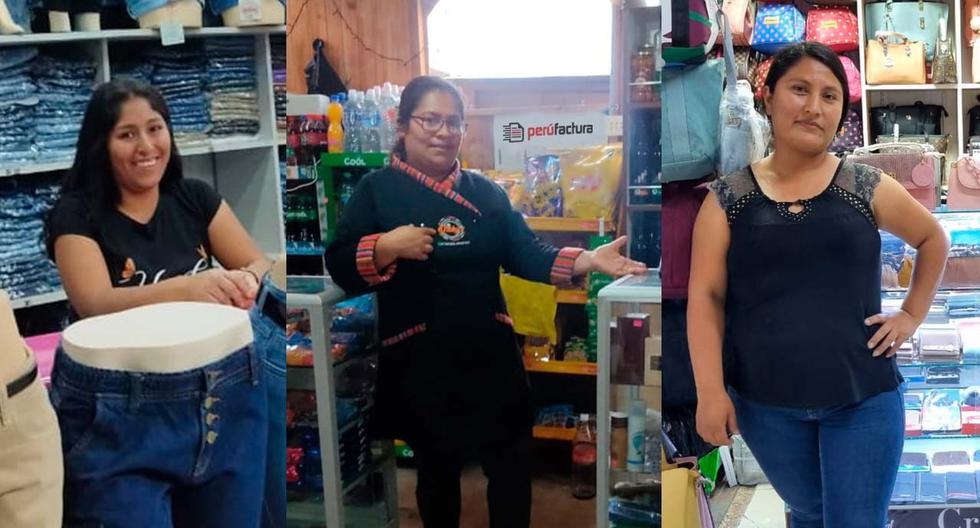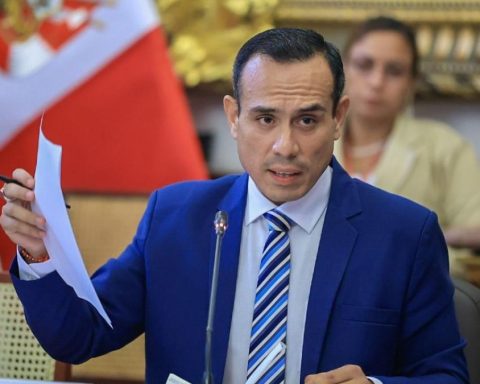SANTO DOMINGO.- The former president Hipólito Mejía reiterated that the country must see the application of technology as a resource that serves to increase the profitability of agricultural production and guarantee increased productivity and the quality of food that reaches the consumer with an adequate level of safety.
He considered it imperative to understand that agricultural production is part of a long chain, which begins on the farm and ends at the consumer’s table, which is why, in the current context, it is so important to produce to satisfy the internal demand for food goods. , as to increase our exports, especially to countries with strong economies.
When delivering his conference “Opportunities in the Agricultural Technology Sector in the Dominican Republic” at the Spain-Dominican Republic Business Meeting, the former president also asserted that, as a fundamental part of that vision of the future, we must consider both environmental sustainability and the use of our comparative advantages.
“In this context, we should begin by asking ourselves: what should we do to achieve a sustainable increase in production and productivity in Dominican agriculture?”
“When we see ourselves in the mirror of technological advances in agriculture in the world, we must admit that there is a huge gap between us and those countries that, like Spain, have been able to give comprehensive responses to the challenges of producing more, better and with greater profitability,” exclaimed
He stressed that, in order to achieve results similar to those obtained by Spain, the first major issue to address is the efficient management of water resources. In this sense, the use of adequate irrigation technologies is essential to reduce the water footprint in those places where there is an abundance of water, and to develop sustainable agricultural projects in those areas where it is scarce.
As immediate and important actions, he said “we are obliged to put integrated pest management into practice through the use of beneficial insects, as well as environmentally friendly fertilizers and pesticides. That is where the guarantee of food safety begins”.
Mejia asserted that the growing demand for food products in the world forces us to substantially increase productivity per planting unit. To achieve this objective, we are compelled to use the genetic advances achieved in the large research centers in various countries of the world.
“The challenge for the Dominican agricultural sector is to do what is necessary to implement effective cooperation agreements that allow us to access this knowledge quickly, and with mutual benefit. Indeed, in this way we would not have to invest human and financial resources to produce here the knowledge that has already been generated in other countries, the result of research,” said former President Hipólito Mejía.
He considered the production of seeds as a fundamental issue for the country, both to guarantee the crops of our basic basket and to venture into those novel crops that are in demand in the international market.
He said that the integral use of the natural resources that we have gives us the opportunity to develop alternative energy projects that allow us to reduce production costs. Referring in this case, to the use of water in small hydroelectric plants, solar energy and wind energy.
He emphasizes that: “In this way, we are ensuring the sustainability of agricultural production and contributing, at the same time, to improving the quality of life of rural residents.”
He advanced that the exponential increase of the population in the world and the accelerated urbanization have as a consequence the systematic reduction of the availability of land for agricultural production, for which we are compelled to introduce new production modalities that allow us to achieve productivity and ensure the safety demanded by today’s consumer.0
“Examples of these innovations can be found in the innovative production technique in tunnels, vertical production, mesh houses and greenhouses, among others. These new production modalities are based on very innovative technological packages that we must put on our conversation agenda”, he explained.
Without a doubt, the technological gap to which we referred earlier is well illustrated by our enormous deficiencies in terms of automation throughout the entire chain.
Consequently, I would suggest that we address this inescapable challenge in depth. In this regard, I am very happy to mention that some Dominican producers are already dabbling in variable fertilization techniques, which increase efficiency, reduce costs and increase profitability.
Friends all:
As we know, the harvest of what has been sown is the moment that summarizes all the efforts made by the producer. It is there where the balance is passed and the profitability of the work carried out is defined.
We also know that post harvest handling is essential for profitability.
In the case of our country, it is estimated that in some items the loss due to poor post-harvest handling reaches up to 38 percent.
Therefore, an obligatory topic to address in this event is the sequence made up of the collection, selection, storage, classification, packaging and transportation of the production.
That is a fundamental issue to take into account in our dialogue on multilateral financing.
Also, when leaving the farm, the harvest goes through the complex process of commercialization, be it for internal consumption or for export.
In this regard, there are two fundamental issues:
In the first place, the conditions of the terrestrial communication routes, from the local roads to the highways and highways. Secondly, the use of our geographical location as a competitive advantage to export to the most important destinations in the world.
For this reason, it is unavoidable that we define agile procedures and mechanisms that professionalize export procedures.
All of the aforementioned leads us to the imperative need to have qualified human resources throughout the entire chain that we have just outlined.
Specifically, that means training and training professionals with knowledge and skills at the highest level, as well as training producers and field staff to be allies and beneficiaries of these efforts.
This training of human resources for the agricultural sector continues to be a pending issue in the scholarship granting programs in the country, therefore, I would like to formally propose that the official bodies that grant scholarships have a special quota that allows us to satisfy the needs imperatives of the agricultural sector in the short, medium and long term.
Finally, I want to refer to the role of the State in taking advantage of the opportunities in the agricultural technology sector in our country.
To begin with, the main role of the State is to define public policies, regulatory instruments and operational mechanisms that create opportunities throughout the entire process.
In this sense, we need agile, efficient and transparent public institutions that are genuine allies of the agricultural sector.
In turn, we need the private sector linked to agriculture to responsibly assume its role in initiatives that allow us, as soon as possible, to convert the Dominican agricultural sector into a vigorous instrument that promotes rural development as a fundamental part of national development. .
We are at a decisive moment to make the decisions that ensure that we achieve that objective.
With the usual frankness, I tell you: now or never!

















